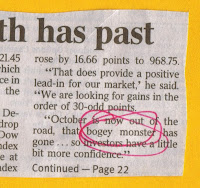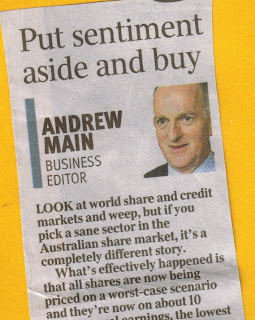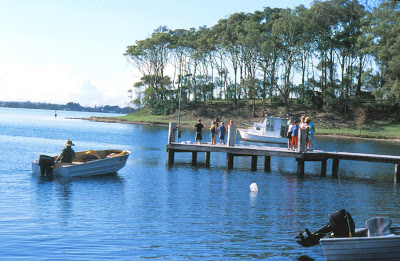In his late 30s – he must now be 58 – Nowra began to live with an Aboriginal woman who had been removed as a child from desperate conditions, taken from her mother, placed in a Catholic girls home, and at the age of 14 forcibly sent to a distant country town to work as a maid.
Justine Saunders overcame those circumstances to become a model and then an accomplished stage, film and television actress. In his SMH piece, Nowra wrote:
There were many things that Justine taught me about the awful, dismal things Aborigines have had done to them and in many parts of Australia still have to endure: the cruel remarks, the constant belittling, the poverty and the cold indifference of government authorities.On the other hand she grew tired of those white people who sought her out as some sort of spiritual guru, just because she was Aboriginal. It was as if she did not exist as a person but as an answer to these white people's lack of their own identity.Perhaps her greatest scorn was for small 'l' liberals who seemed to be merely parroting platitudes about their love for Aborigines; but it always seemed to be talk and no action. "Sometimes I prefer rednecks," she would say after a meeting with such people, "because at least you know where you stand with rednecks."
Nowra doesn't have to spell it out. In my own way – after a much, much more modest interaction than Nowra's – I too treasure the understanding which came from the hospitality and the friendly discussions I've enjoyed with indigenous people over the years. Sometimes, too, I question whether whitefella do-gooders achieve much of value.
But there were other issues which made Nowra depressed, and they're ones I can understand. He tells of becoming involved as scriptwriter of an eight-part documentary series for SBS on Aboriginal history.
These four years proved to be exhausting, profound, exciting and at times depressing. When you study the history of Aboriginal and white relations since the First Fleet, the great difficulty is dealing with the distressing information that confronts you. It seems that wherever white men appeared in Australia, Aboriginal dispossession, deaths from violence and disease, and suffering followed. It took me some months to be able to deal with such horrific matters.
Nowra is not a bleeding heart, small “l” liberal white do-gooder. He saw the terrible social conditions in many indigenous communities and felt compelled to write about them.
The combination of history, government inertia, welfare dependency and alcohol had created a perfect storm of community dysfunction. So last year I wrote a slim book about it called Bad Dreaming.
The book was based on government reports, anthropologists, historians and journalists and Aborigines themselves. I can claim no originality. I wanted non-indigenous people to understand just what was happening to our indigenous population. Writing the documentary series convinced me that we owed an obligation to help a people we have treated so badly too much of the time.
Nowra's scriptwriting was for the SBS television series First Australians. Nowra acknowledges that when a documentary series goes into the can, the scriptwriters' work may be overshadowed by personal interviews and the visual material. So it was with First Australians – but it all came together magnificently.
And as Nowra says, SBS publicised it brilliantly. The reviews and articles about it were excellent.
It was so good it won this accolade from a Quadrant contributor: “ . . . another example of the constant reaffirmation of 'the invasion/genocide/stolen generation/racist version of Australian history' ".
Nowra says he thought the publicity would result in big audiences.
But I was wrong. The numbers generally hovered around the 300,000 mark . . . a bland middle-class family drama, Packed to the Rafters, attracts about 2 million per episode.
Before Christmas, your grumpy old blogger felt a bit down.
I tried to tick off the reasons. An unwise choice of festive season reading – Sebastian Faulks's novel Charlotte Gray, with the round-up of Jews in occupied France as the bleak backdrop to a rather unconvincing love story. Distressing news about an old friend's illness. Forgetting to count my drinks at several functions.
I've scrolled through my old posts, and I remain proud of some of them and reasonably satisfied with most others. Most are well-written, some light and bright, and others – on, say, the Intervention or the Haneef affair – offered insights which stood up well in the ensuing months.
Like Louis Nowra, I'm dismayed that what I believe to be quality work can fail so dismally in the ideas marketplace.
For GOJ, one impediment may be a disconnect between the stories and the medium. If my yarns were printed on dead trees and thrown on to the front lawn in the morning, they might be picked up by more potential readers.
Younger and more lively-minded people don't use the internet to read essay-length pieces. They exchange ideas and information at a breathtaking pace, often on social networking sites such as Facebook or Twitter.
Elsewhere, a wonderful family Christmas restored my optimism and cheerfulness. I'm now confident the new year will deliver more opportunities, more adventures and more satisfaction, albeit in a rapidly changing and more challenging world.
I hope your path also leads you into a bright new year. Perhaps, now and again, we'll meet along the way.














